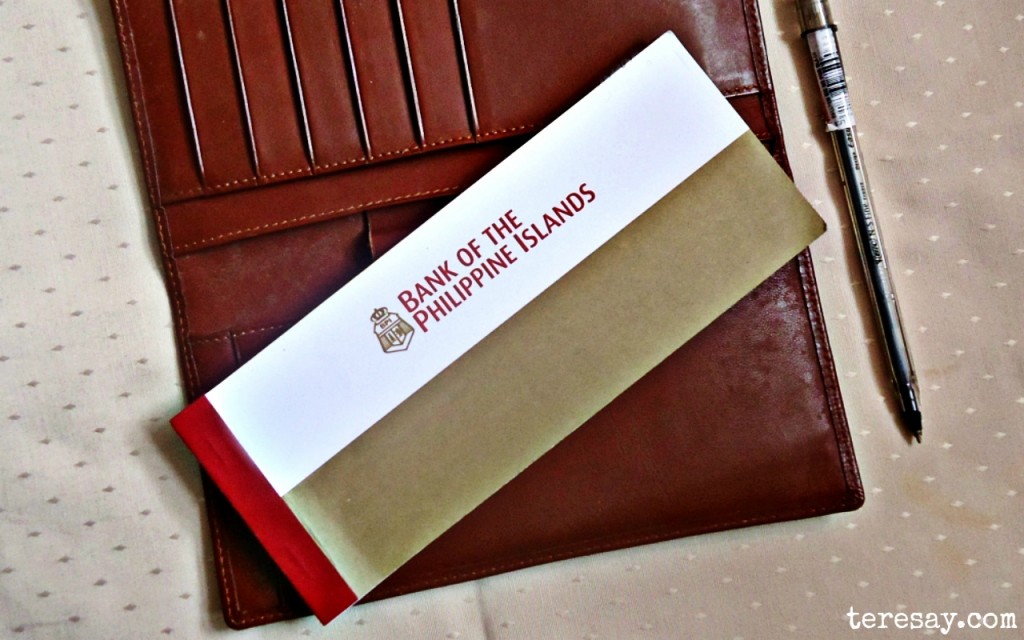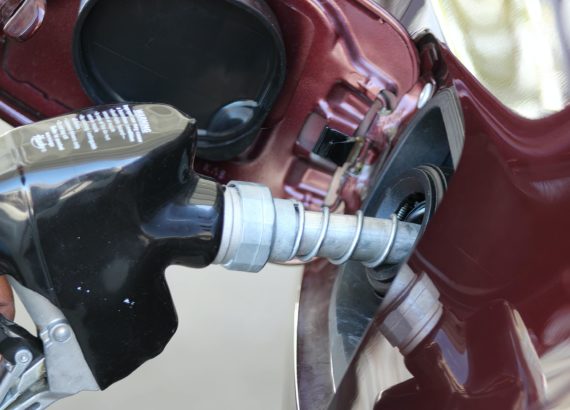Proper Handling of Checking Accounts
A checking account is one of the most misunderstood banking products in terms of purpose and handling. Some see it as a means to address their payables, not realizing that it needs to have funds to be of any use. Unlike credit cards which allow holders to purchase from commercial establishments through a credit amount extended by the issuing bank, checks have to be issued with corresponding funds in the bank . Issuing unfunded checks have serious repercussions to the issuer.
What is a Checking Account?
Checking accounts are also known as current accounts or demand accounts. It is one of the most common financial services offered by banks. Access to the funds contained in a checking account is usually done by issuing a check although it is possible to withdraw from it as well over-the-counter or through an automated teller machine.
Unlike savings accounts which are typically interest-bearing, checking accounts do not earn any interest. There are specific types of checking accounts that are interest-bearing but these are usually tied up with another account such as savings or time which requires a higher minimum maintaining balance. Stand-alone checking accounts are also required to maintain a certain amount for account holders to be spared from paying a fee by reason of falling below the maintaining balance.
Features and Uses of a Checking Account
Checking accounts provide account holders a convenient and safe means of carrying “money” around compared to actual cash. With the actual funds kept with the bank, account holders can pay for their bills or purchases by simply writing a check. Issuing of checks is a common financial activity done by individuals and companies. Some even see checks as a status symbol since the acceptance of a personal check by a commercial establishment is usually representative of the trustworthiness bestowed on the account holder. Checks are not readily accepted in many establishments because of the risk involved especially in accepting check payments from people with unverified financial background.
A check is only as good as the funds contained in the bank. Unfunded checks are worthless pieces of paper. Issuing unfunded checks is sought to be controlled by banks through high charges. Checking accounts can be closed by the bank after a number of overdrafts. This is not a highly desirable option since account holders whose checking accounts have been closed due to misuse will find it quite difficult to open another similar account.
Important Reminders
A well-maintained checking account is a good way of establishing solid credit history. This would require account holders to avoid having overdrafts or issuing checks with amounts beyond the actual funds contained in the account. Checks that are presented to banks under such a condition will “bounce” or will be returned by the back due to insufficient funds. A single bounced check can easily destroy a credit reputation that has been painstakingly built over the years.
A check is only considered good when sufficiently funded. It can be crossed or issued with two parallel lines on the upper left corner to signify that it is only for deposit to the account of the payee. All erasures and alterations have to be signed by the issuer. Without these signatures, the bank can choose not to honor the check unless all the details of the check are in order. This would require the payee to go back to the issuer to have the details corrected.
Proper Handling of Checking Accounts
Account holders are required to strictly monitor the deposits made on their accounts as well as the check issuances. Failure to do this usually results to overdrafts and unintended overdrafts will not be able to stop the consequences. Issuing checks payable to “Cash” is discouraged since this allows anyone to encash the check. This gives rise to the difficulty of tracking the person who encashed it if and when a problem arises with the transaction.
It is necessary to keep the checks in a secure place since blank checks especially those that have been pre-signed by the owner may result to possible loss of the funds contained in the account. Requesting “Stop-payment” for lost checks may incur charges, not to mention the great inconvenience and anxiety caused by the loss. People whose checking accounts usually end up being closed by the bank may find themselves in a watch list shared by the banking industry which can result to permanent banning from opening one in any bank.
My Say
A checking account is an important and valuable financial tool which is most beneficial when used in the correct manner. The proper handling of checking accounts can provide account owners one way to manage their finances with more ease. It only needs monitoring to ensure that all checks issued are funded.














Shela
Having checking account is easy way to tract your daily expenses compared using the cash. So we prefer these kind of stuff we rarely use cash actually. nice tips!
Teresa Martinez
Glad you found the information useful.
Kaye Figuracion
Working in a bank for two years familiarized me with the nature, correct usage and proper handling of checking accounts. Users of this kind of account should closely monitor the amounts they issued so as not to incur charges when they issued a check more than its actual balance.
Teresa Martinez
That is quite true. Failure to monitor the account properly can result to costly charges.
peachy @ The Peach Kitchen
I don’t own a checking account and I’m not a fan of it because I think there’s too much to think about …
Teresa Martinez
Having a checking account is quite a responsibility although it is very useful for those who need it.
Momgen Reviews
I do not have my own checking account but hubby and I have both in one account…Here in US its easy to have your own checking account and its free…
Teresa Martinez
I heard that it is easy to open a checking account there although the responsibility attached to it should not be taken for granted.
claire
Check and balance really is the key for a successful checking account. If not properly handled it will make you suffer in return
Teresa Martinez
It has its use but it can definitely spell trouble when not handled properly.
jheylo
it’s funny how i got used to checking accounts or using debit card when purchasing something because i rarely get to hold the real money and when i do i get so conscious because it stinks. hehhehe I think having checking accounts are of great advantage just like what you said about establishing solid credit scores, that’s one way of establishing credit history.
Teresa Martinez
A properly handled checking account is indeed one ay of proving clues on how responsible a borrower can be.
Working MAMA
i used to have a checking account for housing loan purposes, this account is actually need superb time supervision so owner can’t pay penalty for lapses.
Teresa Martinez
There really is a need to monitor the ins and outs of checking accounts to make sure that every check issued is funded.
joy h
We have a checking account since I married my husband. He is the one who had it and when I married him, of course, I gotta use it too. It was indeed very convenient to have a checking account, it’s faster way to have an access over your money. But, sometimes, you have to avoid some fees associated with it. But overall, having a checking account is good way for us to receive and use our money.
Teresa Martinez
A checking account has its specific use. As long as it is used for its purpose, then there is really nothing to fear about having a checking account.
Chubskulit Rose
I handle our finances and keeping track of the payments you’ve made is very important. Some rely with their online records but I still keep a handy book for our checking for easy access..
Teresa Martinez
I always keep a hard copy of my transactions whenever possible especially when it comes to financial transactions.
marly_ms (@mgmhar)
We always keep our check book balanced and up-to-date as well in online banking.
It’s been there for a long time and we keep track of every activity. We use checking account for bills payment and for other expenses.
Teresa Martinez
Seems like you’ve found the perfect use for funded checking accounts.
myverbaldiarhhea
I want to open a checking account here..in the future. Indeed, you must monitor all your accounts.
Barbie
Hi! I came across your post in Pinoy Bloggers.
This is a very interesting topic, and you handle it very well. I’ve always disliked checking accounts – in my opinion they’re hard to acquire and are notoriously annoying to balance. You might not have changed my mind about them, but it is, as I said, a good read. 🙂
Will definitely keep your blog on my to-read list.
Teresa Martinez
Thanks very much. I’ve visited your blog and I really like the clean layout and relevant articles.
Aileen
I’m not yet in the position to have a checking account, but in the future, having read this article of yours would greatly help me 🙂
Teresa Martinez
I’m glad you found this post relevant even if you are not yet in the position to have one. You must be very young.
Franc Ramon
Most of checking accounts are non-interest bearing so some people just deposit the funds in time for the requirement but ensure that issue checks that are funded or else the consequences can be severe.
Teresa Martinez
The consequence of issuing unfunded checks is the main issue. Otherwise it can be maintained with ease.
Geeky guide
A very informative post!
Teresa Martinez
Thanks for visiting.
levy
When I had my first checking account, I was very nervous to use it. It’s a good thing I have finished paying the down payment for the house that is why I don’t need it anymore. It is still best to pay in cash in every transactions.
Teresa Martinez
Paying in cash provides us the peace of mind to settle our payables without the risk of forgetting to fund a check although checking accounts certainly have their purpose.
mommyjem
Thanks for this info. I do not have checking account only hubby that we use to pay our monthly amortization for the house loan. We keep the account in good standing.
Teresa Martinez
That is perfectly fine since there is no sense in maintaining another checking account when there is no need for it.
sigrid @ earn money
The only thing I do probably is keep the checkbook in a safe place. Waaa But I don’t do check and balance. 🙁
Teresa Martinez
You should try before it gives you any problem in the future.
Mommy Pehpot
True! One should be responsible in handling well his/her checking accounts. In this way, we can use it not just in future reference but in the present time as well!
Teresa Martinez
A checking account in good standing can form part of a person’s record of credit worthiness.
Zoan
I have two checking accounts and i always see to it that it has enough funds before issuing a cheque. I dont want to stain my name by issuing checks that will only bounce because it has no fund.
Teresa Martinez
That is very wise of you.
nuts
we should be wise in handling bank accounts. I remember my last check account .. it was terrible because I did not monitor my account well.. but I am wiser now..
Teresa Martinez
We sometimes learn the hard way but the important thing is that we learned.
rj's mama
I’ve never issued a “Cash” cheque. Before I issue a cheque, I usually check my account balance because banks don’t call and inform you that you’re credit is negative already, unlike 2 or 3 years ago they still give you time to fund your checing account
Teresa Martinez
Banks have become very strict and for good reason I think which is to discourage issuing unfunded checks.
Les
We used to have checking accounts, unfortunately I was unable to monitor it properly. We decided to close the account nalang to avoid future penalties, sayang din kasi
Teresa Martinez
That is unfortunate. Anyway, if there is no need to have a checking account, then it would be best not to open another one.
Karen
This is a good reminder to those who have a checking account, including me. I am very careful in using it. I don’t wanna mess up and have big problems later.
Teresa Martinez
A checking account is not as easy to open as a savings account thus the need to be more careful with it.